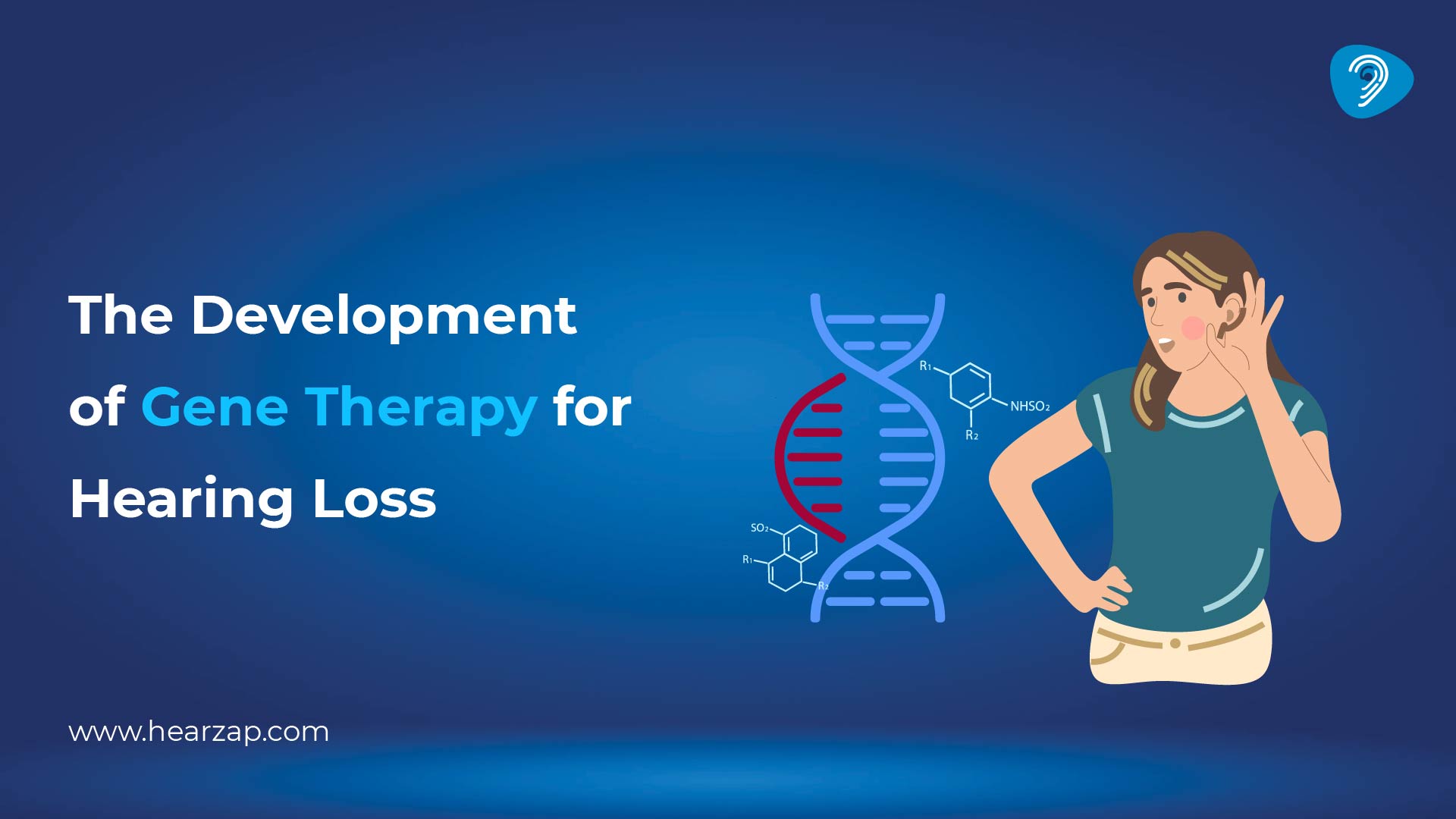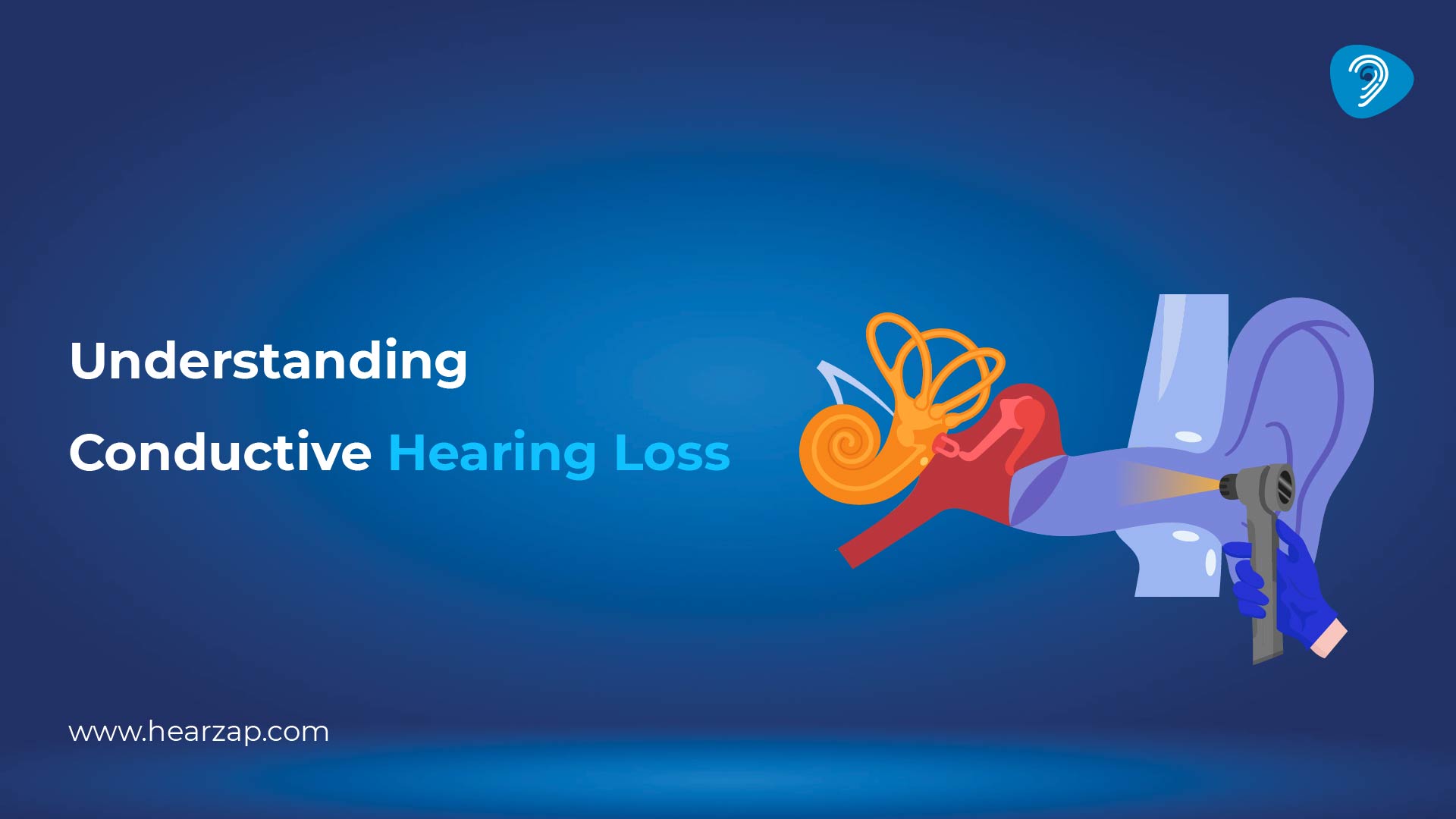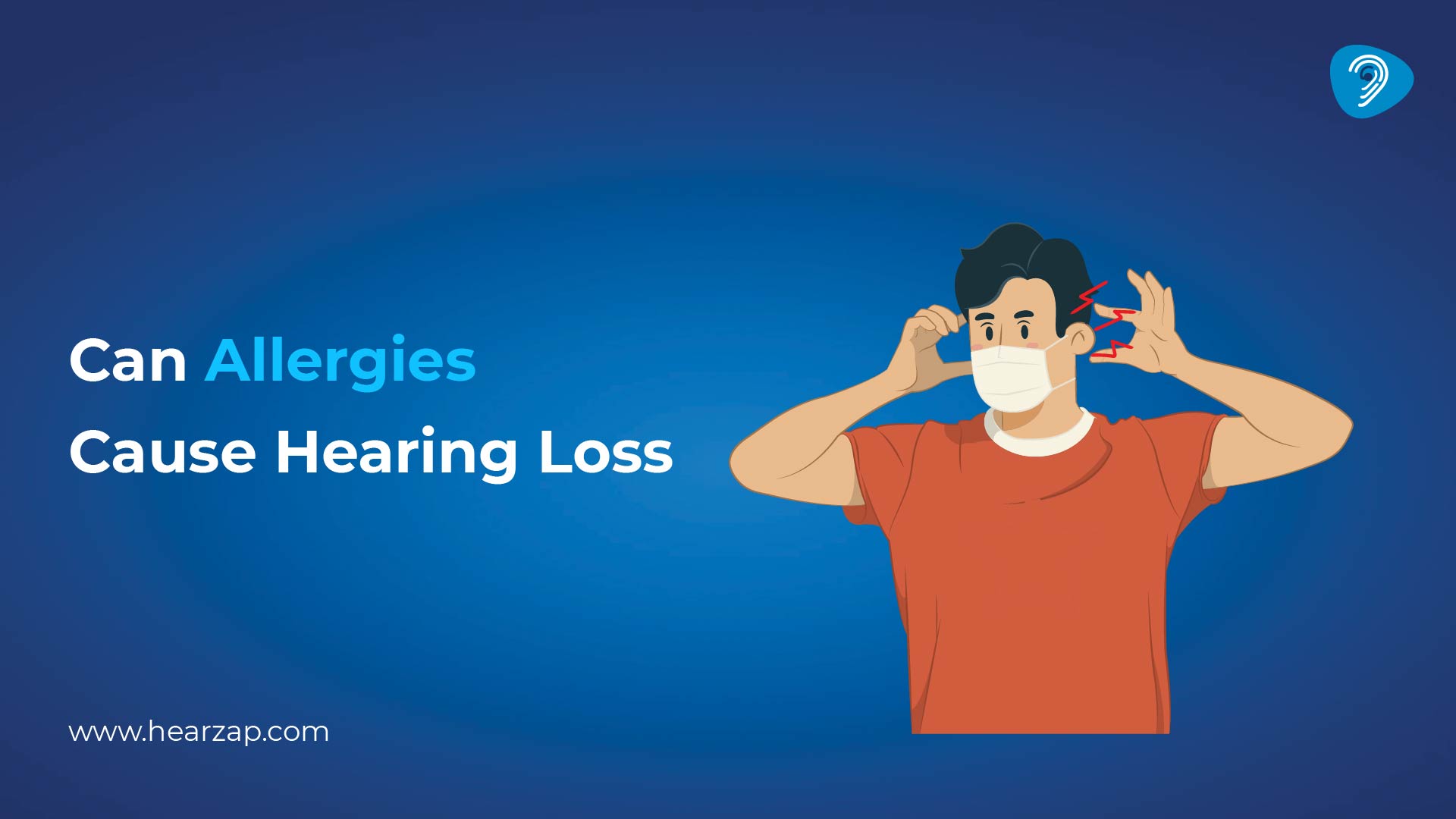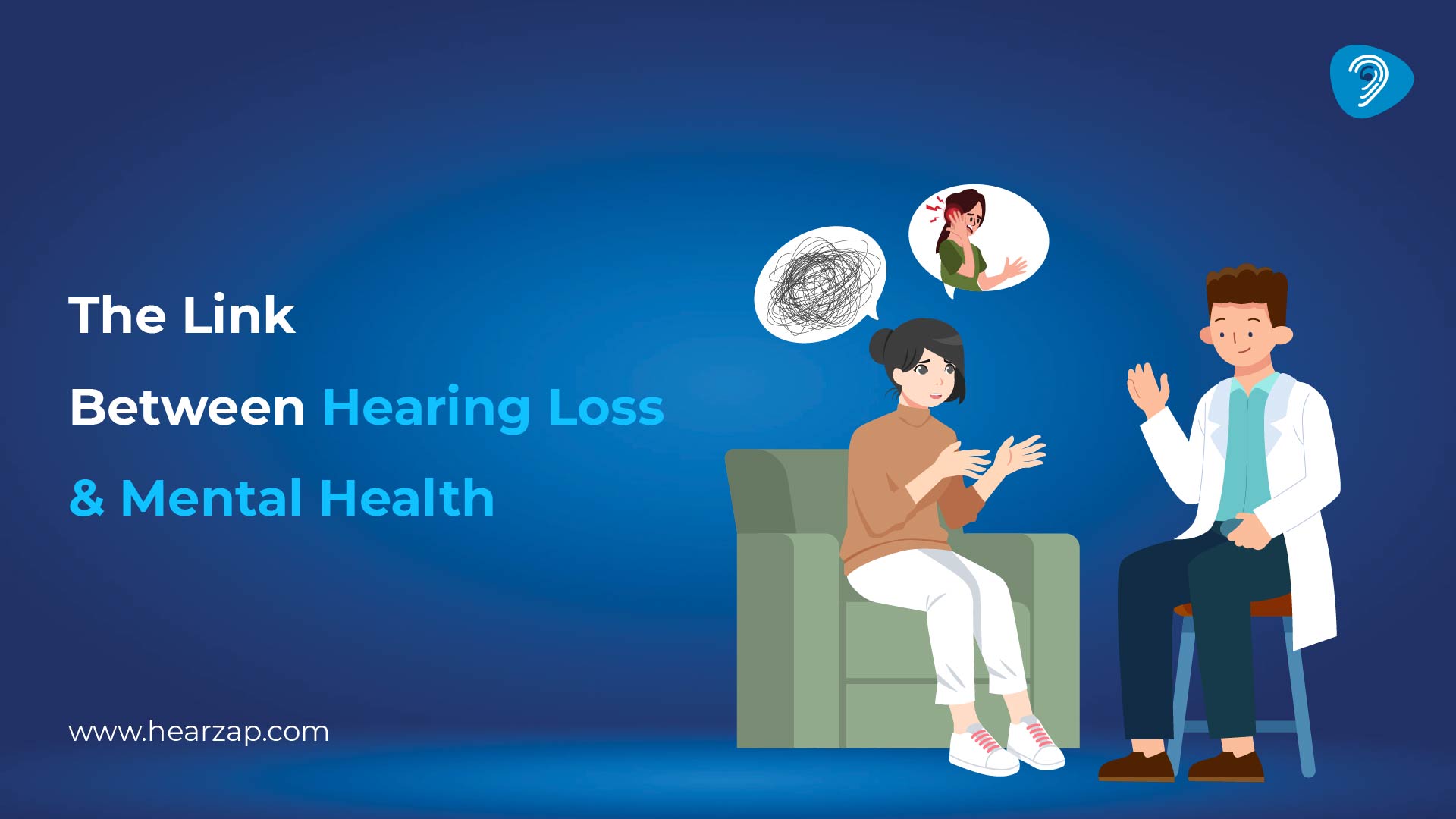HEARING LOSS
Development of Gene Therapy for Hearing Loss
By Team Hearzap | May 5, 2025
Imagine a world where hearing loss doesn’t have to be permanent. Where, instead of using hearing aids or implants, your hearing could be restored at the source. That’s exactly what gene therapy is working to achieve.

What Is Gene Therapy?
Gene therapy is a treatment type that fixes the root cause of hearing loss, i.e., damaged or missing genes. Scientists insert healthy copies of genes into the cells of your inner ear using tiny carriers called viral vectors. These healthy genes then start doing what the faulty ones couldn’t: help your ears hear again.
Why Does It Matter?
- Mostly, hearing loss happens because the tiny hair cells in your inner ear stop working properly.
- These cells are crucial as they’re the ones that turn sound waves into signals your brain can understand.
- Gene therapy is the first treatment designed to repair those cells or help new ones grow.
Who Can It Help?
Right now, it’s especially promising for kids born with genetic hearing loss. That means:
- Children with specific gene mutations like GJB2 or OTOF.
- Families who previously had no real solution beyond devices.
Why is it the Buzz?
- New tools like CRISPR, a gene editing technique, allow scientists to fix DNA errors with incredible precision.
- Dual vector delivery is a new way to insert bigger, more complex genes into the ear.
Why This Changes Everything
- These trials are showing real results in humans, not just lab animals.
- Participants are hearing sounds for the first time, sometimes just weeks after treatment.
- Most importantly, the therapies are proving to be safe and long-lasting.
What Comes Next?
- Larger trials are already underway.
- The FDA is reviewing more gene therapy treatments than ever.
- Experts believe we’re just a few years away from making these treatments available to the public.
Who Can Get Gene Therapy for Hearing Loss?
Currently, gene therapy is only available in clinical trials, and mostly for:
- Young children born with specific types of genetic hearing loss.
- Families who’ve had hearing loss passed down for generations.
- Patients who still have functioning auditory nerves and healthy ear structures.
In short, it’s helping the people who need it most and where the science has the best chance of working.
Why Timing Matters
- The younger the child, the better the results.
- That’s because the ear is still developing, which makes it easier to regrow hair cells or repair genetic damage.
- Early treatment also helps kids learn speech and language skills naturally.
What About the Rest of Us?
If you’re thinking, “What about hearing loss from aging, noise, or accidents?” — you’re not alone. The good news is that the Scientists are working on it.
- New approaches aim to regrow hair cells or even reprogram existing ones.
- Future treatments may combine gene therapy with drug based or stem cell therapies.
How Soon Will It Be Available?
- Widespread use is likely 5 to 10 years away, depending on trial results and regulatory approvals.
- Prices and insurance coverage are still being figured out.
One thing’s clear gene therapy won’t stay experimental for long. This isn't just a medical breakthrough, it’s a glimpse into a future where hearing loss doesn’t define your life anymore. And that future is getting closer every day.
Related Blogs

Conductive Hearing Loss: Symptoms, Diagnosis & Treatments

Can Allergies Affect Your Hearing? Symptoms, Causes & Treatment

The Link Between Hearing Loss and Mental Health
Contact us
We are here for all your hearing needs, from hearing tests to hearing aids. Fill out the form below, and we will give you a call soon.
Please enter a valid mobile number with 10 digits.
Recent Blogs
By None | Jan. 22, 2026
By None | Jan. 20, 2026
By None | Jan. 12, 2026
By None | Jan. 6, 2026
By None | Jan. 5, 2026









